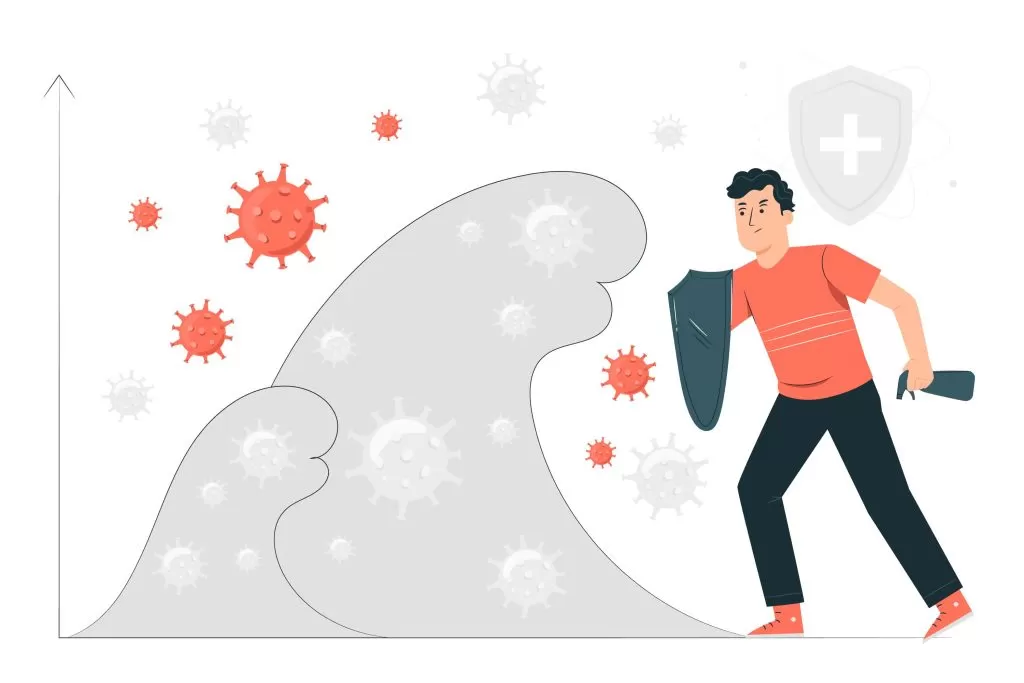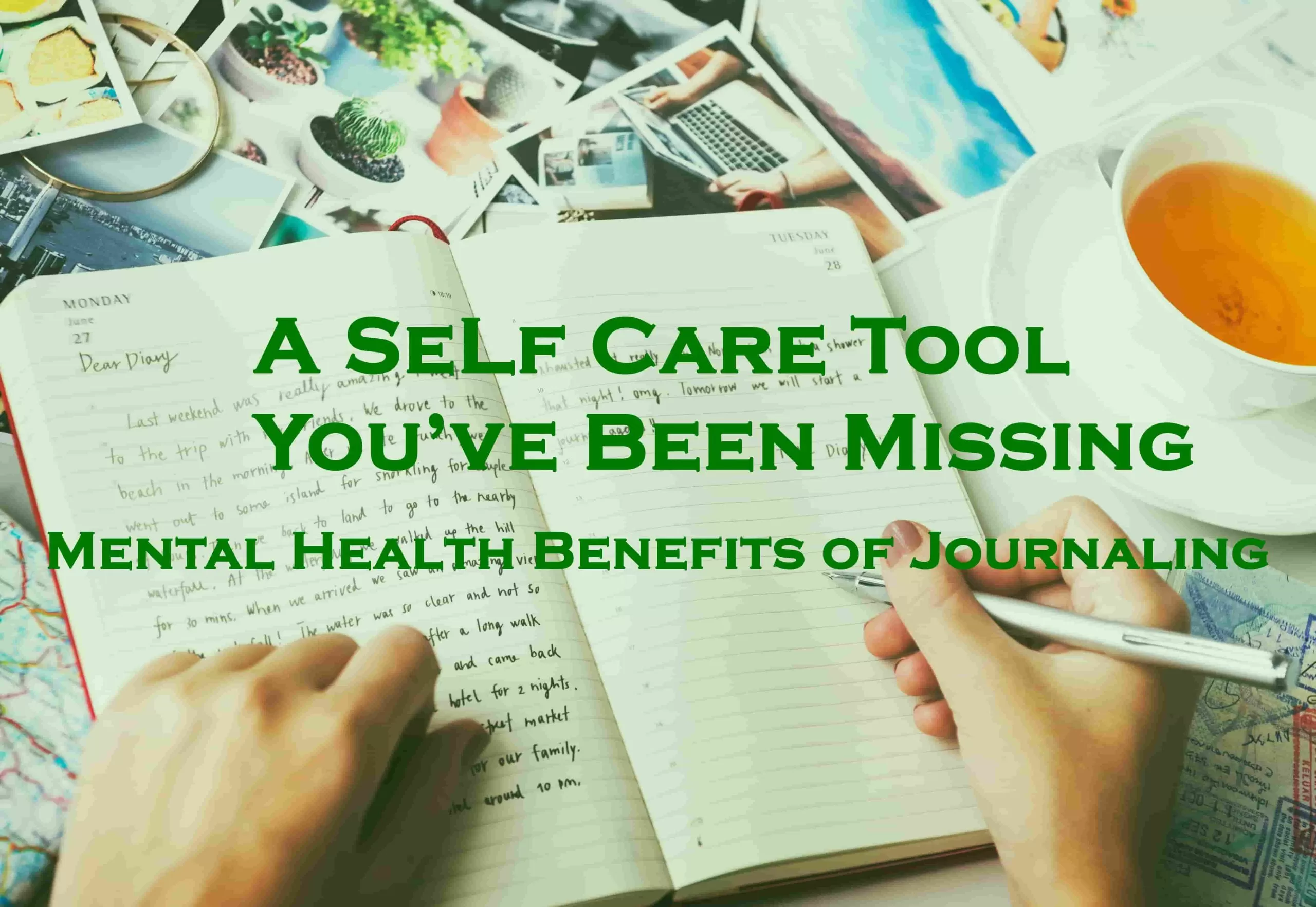Do you know the mental health benefits of journaling? Do you write? Here I am talking about writing your heart out on a piece of paper on a daily basis. In happiness or sadness or in stress or just writing your random thoughts which you want to keep to you. If yes, then without knowing you are mending yourself from inside and outside. For some people, it may be an enjoyable activity but for some, it may be therapeutic. People who are dealing with anxiety or depression find a friend in their journal.
When thinking about journaling, the first thing that comes in a picture is a teenage girl lying in her bed, with a pen and diary, writing random stuff in it. There are so many thoughts that come during the teenage years. A number of unanswered questions that she wants to know or she already knows, writes in her journal. Studies have shown that writing a journal or diary has proven a positive impact on one’s physical and mental health. This article specially deals about the mental health benefits of journaling.
What is Journaling?
Journaling is the practice of writing down one’s thoughts and feelings in a journal or diary. It can be a therapeutic and reflective activity that allows individuals to process their emotions, document their personal growth, and gain clarity on their thoughts and experiences. Journaling can take many forms, including writing about daily events, setting goals and intentions, or using prompts and exercises to explore deeper personal issues. Some people use journaling as a way to practice mindfulness, self-compassion, or creativity, while others find it helpful for managing stress, anxiety, or depression. Though there are tons of mental health benefits of journaling, there are no set rules for journaling, and individuals can tailor their practice to their own needs and preferences.
History of Journaling
Journaling, or keeping a diary, has a long history dating back to ancient civilizations. The ancient Egyptians and Greeks both kept written records of their daily lives, including personal thoughts and events. In the Middle Ages, it was common for religious figures to keep a record of their spiritual journey through journaling.
During the Renaissance, journaling became more popular among intellectuals and writers as a way to record their ideas and musings. The practice of keeping a diary became more widespread during the 18th and 19th centuries, with the invention of the portable writing device known as the diary.
In modern times, journaling has become a popular form of self-expression and personal development. Many people find that writing down their thoughts and feelings helps them to process their emotions and gain clarity on their thoughts. Journaling can also serve as a way to document personal growth and track one’s progress over time.
In addition to traditional paper and pen journaling, there are now numerous digital options for keeping a diary or journal. These include apps and websites that allow users to easily write and organize their thoughts and experiences, as well as share them with others if they choose.
Overall, the practice of journaling has evolved significantly over the centuries, but the basic concept of recording one’s thoughts and experiences remains the same. It continues to be a popular and effective way for people to reflect on their lives and personal growth. Gradually, people began to realize the mental health benefits of journaling.
Mental Health Benefits of Journaling
Apart from just recording memories or self-expressing, a journal does more than that. The mental health impact is more than physical impact in a person who writes a journal. So let’s see a few of the mental health benefits of journaling.
Reduces Stress
A study from New Zealand in 2013, showed that 76% of adults who spends 20 minutes in writing journals daily for continuous 4 months, is sufficient to reduce stress and help in lowering blood pressure levels and improving the liver profile. It can be like meditation if you choose to write a journal at night before going to bed. It can help you in de-stressing and unwinding by recording your all-day activity. Writing about your feelings and thoughts can be a cathartic and therapeutic process. It can help you process and understand your emotions, and provide a sense of clarity and perspective.
Helps in Strengthening Your Immune System
Research has shown that expressive writing can lead to improved immune function, helping to reduce the risk of illness. Studies have shown that a person who is fighting a terminal illness like cancer or HIV aids and writes a journal, copes better and shows physical benefits. A patient dealing with these diseases writes their negative and positive experience regarding their treatment. It acts as a therapy as it gives shape to your anxious feelings and emotions.

Fights Depression
Studies have proven that writing journals can fight prolonged depression. You can write your thoughts and emotions and what is bothersome to you. By writing down everything, you can find the warning signs of depression. By reading your written journal, you may realize that it is time to seek some professional help who can guide and take you out of your depression.
Improves Your Mood
Studies have shown that regularly expressing your thoughts and feelings through writing can lead to improved mood and overall well-being. It helps in clearing your mind, if you put things in your journal. If you express your emotions in your journal it will help you to overcome them rather than bottling them up. Even in extreme cases, expressive writing helps a lot. It lowers body tension, anxiety and anger.

Helps in Emotional Release
It helps with healing, resolving any signs of traumas. When you write down all your emotions, it helps as an effective emotional release. And if you go through your written journal you can find inspiration to move forward leaving behind the trauma. For example- You had a bad day in your office, and by the end of the day you want to scream at someone, it’s better to write a journal for that emotional release.
Promoting Self-Awareness
Journaling can be a powerful tool for promoting self-awareness. When you write about your thoughts and feelings, you are forced to reflect on your own experiences and emotions, which can help you gain a better understanding of yourself and your motivations. This self-reflection can help you identify patterns and habits in your thoughts and behaviors, and can also help you identify and resolve underlying issues that may be contributing to stress or other negative emotions.
Enhancing problem-solving skills
Journaling can enhance problem-solving skills by providing a space for self-reflection and exploration. When you write about your thoughts and feelings, you are forced to think about problems and challenges in a more structured and focused way, which can help you identify patterns and underlying issues. This self-reflection can also help you generate new ideas and perspectives, and can lead to more creative and effective solutions to problems. Additionally, journaling can help you clarify your thoughts and emotions, which can make it easier to identify and address problems. By writing about your experiences and emotions, you can better understand what is causing problems or challenges, and can develop more effective strategies for addressing them.

In addition, journaling can help you become more aware of your own emotions and how you respond to different situations. By writing about your experiences, you can gain a better understanding of how you feel and how you cope with different emotions. This can help you identify any negative thought patterns or behaviors that may be contributing to stress or other negative emotions, and can help you develop more effective coping strategies.
How to grab utmost mental health benefits of journaling?
Writing a journal can be a powerful tool for improving your mental health. Here are some tips for getting the most mental health benefits of journaling from this practice:
Set aside dedicated time for journaling
Choose a time of day that works best for you and try to write at the same time each day. This will help make journaling a regular part of your routine.
Find a comfortable and quiet place to write
A comfortable and peaceful environment can help you relax and focus on your writing.
Start with a clear purpose
What do you want to achieve by writing in your journal? Do you want to process your thoughts and emotions, set goals, or explore your creative side? Having a clear purpose can help you stay focused and motivated.
Write freely
Don’t worry about grammar or structure. The goal of journaling is to express yourself, not to produce a polished piece of writing.
Be honest and authentic
The more you can be open and honest in your journal, the more benefit you will get from this practice. Don’t worry about being judged or criticized – this is a safe space for you to explore your thoughts and feelings.
Reflect on your experiences
Take some time to think about the events and experiences you have had over the past few days. What were the highlights? What were the challenges? How did you feel about them? Reflecting on your experiences can help you gain insight and understanding.
Set goals and track your progress
Use your journal to set goals for yourself and track your progress. This can help you stay motivated and achieve your desired outcomes.
Seek support
If you are struggling with a mental health issue or feeling overwhelmed, consider seeking support from a mental health professional or trusted friend or family member.
By following these tips and making journaling a regular part of your routine, you can gain numerous mental health benefits, including improved emotional regulation, increased self-awareness, and greater self-acceptance.
Do’s and Don’ts while Journaling
We have discussed above about the amazing mental health benefits of journaling. There are some things to remember while journaling. Lets discuss about some do’s and don’ts to grab most of the mental health benefits of journaling.
Do’s
Write about whatever you want. There are no rules for what you should or shouldn’t write about in your journal. You can write about your thoughts, feelings, experiences, goals, or anything else that comes to mind.
Write regularly. It can be helpful to set aside a regular time to write in your journal. This can help you make journaling a habit, and can also help you track your progress and growth over time.
Write as much or as little as you like. There’s no set length for a journal entry, and you can write as much or as little as you feel comfortable with.
Use prompts or questions to guide your writing. If you’re having trouble getting started, you can use prompts or questions to help guide your writing. These can be as simple as “What did I do today?” or “What are three things I’m grateful for?”
Be honest and authentic. It’s important to be honest and authentic when you’re journaling. You don’t have to worry about grammar or spelling, and you can write about whatever is on your mind.
Don’ts
Don’t worry about grammar or spelling. The purpose of a journal is to express your thoughts and feelings, not to produce polished writing.
Don’t worry about writing perfect sentences. It’s okay to write in fragments or incomplete sentences if that’s how you feel most comfortable.
Don’t force yourself to write if you’re not in the mood. If you’re not feeling up to writing in your journal, that’s okay. You can always come back to it later when you’re feeling more inspired.
Don’t worry about what others will think. Your journal is a personal space, and you should feel free to express yourself without worrying about what others might think.
Don’t feel like you have to share your journal with others. You can keep your journal completely private if you prefer, or you can share it with others if you feel comfortable doing so.

